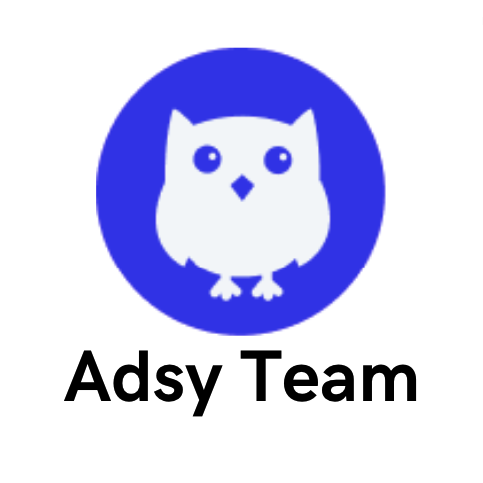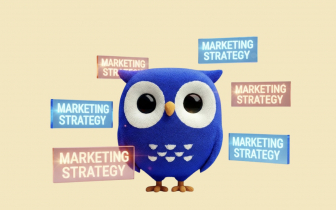Enterprise SEO: Strategies and Best Practice for Effective Business Growth

What do big e-commerce titans, Fortune 500 companies, and giant international businesses all have in common? They all depend on enterprise SEO solutions in one way or another to maintain their competitive edge and pull more revenue.
Yet, is it different from the normal search engine optimization we are all used to? Yes and no. Here’s the thing – it is like SEO on steroids.
But that’s just barely scratching the surface. So, in this post, we will break it down step by step. By the end, you will become a pro yourself.
What is enterprise SEO?
Enterprise SEO basically improves the visibility and rankings of a very large website, usually with thousands of web pages. That's why its often called corporate, or large-scale SEO. Think of giants like Github, Amazon, WebMD, Forbes, and other big-league sites. GitHub alone has over 80 million pages.
Source: GitHub
When it comes to search engine optimization of these big sites, the goal is still the same as regular SEO – to get more traffic, improve visibility, and get more conversions, but on a far grander scale.
What about the benefits of enterprise SEO? As these companies are generally already well-known, they don’t really need to work on their brand awareness.
But every business, no matter how big, still needs a sustainable long-term growth strategy. And nothing fits the bill better than search engine optimization.
Difference between SEO and enterprise SEO
Source: Semrush
It’s very tempting to limit enterprise-level SEO differences to just a higher number of pages, but that would be way off. In reality, search engine optimization can start looking really different when you are playing on a bigger stage, and here’s why.
Technical SEO
It’s harder to catch and quickly correct large-scale SEO issues. The reason is simple: unlike regular SEO, where you are just dealing with a nice little cottage, here you have a medieval-style castle with moving staircases and secret rooms.
It is simply harder to monitor for errors and cannibalization. Let’s not even get into what it takes to manage the crawling budget and ensure all pages are indexed.
On-page SEO
For the same reason (the sea of pages), SEO for enterprises is more difficult to optimize and check for duplicate titles, descriptions, and internal linking. Changes are harder to implement and take longer (often much longer). Why is that?
When there are many pages involved, sometimes, even a little change in one place can affect hundreds of other things and create more work.
Source: HubSpot Blog
Since there are several departments involved, trying to make any modification, even when it’s going to help SEO, will often result in having to wait for approval from someone who needs to get approval from someone else higher up the chain.
In some cases, it might mean months of Zoom calls and meetings. Oh, and don’t forget – you’ll need to find a team that actually knows how to work at this scale. As you might have guessed, not everyone can handle it.
Need for complex tools
Obviously, you won’t be able to use free versions of the SEO software or hope to choose one of the starter packs.
To effectively manage your goals, you’ll need enterprise-grade SEO tools, which are more complex and pricey. Alternatively, you might consider getting subscriptions to simpler SEO tools designed for large websites and combining them with automation software.
Yet, even if you skip large-scale SEO solutions, using regular ones will still require you to opt for the most expensive plans, as they’re usually the only ones capable of meeting your needs.
Scaling/competition
At this level, you’re not dealing with a 120-page cute blog. Instead, you need to account for thousands or millions of pages. That means a lot of things need to be automated, as doing everything manually will waste your time and, frankly, drive you crazy.
Plus, it’s challenging to find new growth opportunities – you can only really draw inspiration from and compare strategies with similarly large corporations.
It will likely become harder over time simply because it's easy to run out of ideas. That’s why you need plenty of resources and creativity to outperform other brands.
Source: @Kevin_Indig on X
But even despite all the potential challenges, ignoring search engine optimization isn’t an option. In the end, the benefits of enterprise SEO far outweigh the cons. So, how do you get in on the action? That’s what the next section is about.
Enterprise SEO strategies & best practices
You already know that corporate SEO strategy is a lot more nuanced and complex, but that hardly tells you how to navigate it. So, here are a few of our top tips to make your life easier:
Content creation and optimization (whet your appetite)
Content is still very much king in 2024, while consistency is key to getting it right. So, post new content regularly, and don’t forget to give old posts some TLC from time to time.
What else can you do?
- Check out your competitors. Out of ideas for your content marketing large-scale SEO strategies? Consider comparing your site with competitors. What are they writing about? What’s working for them? You might find new ideas, discover content gaps, and dig up intel for new growth opportunities.
- Don’t focus on one content type. Mix things up. Some blogs, videos, white papers, courses, and other varieties will help you generate traffic from different audience demographics. If there's not enough time or human resources to handle it all, you can outsource it all to a content creation agency.
- Optimize existing pages. Pay attention to the pages that are not performing as well as you want them to and optimize them. Sometimes, a little tweaking of the keywords and sprinkling a few more images can be all it takes.
- Group content by subdomains. Another thing you can find useful is grouping content by subdomains when possible/necessary so it’s easier to manage.
- Localization is your bestie. And last but not least, enterprise SEO marketing requires you to play nice with others. So, translate and localize your content to make it more appealing to the international community.
- Time & project management. Make sure you have a clear structure outlining who is responsible for what and how long each task typically takes.
Source: @ahrefs on X
Technical optimization (everything in its right place)
Enterprise SEO management is a beast to tame, but it starts with getting your technical SEO right. In fact, prevention is definitely better than cure here. If anything goes wrong, things can get messy real fast.
So, since there are way too many moving parts, it’s best to perform regular site audits to catch and fix errors in time. Focus primarily on crawling and indexing issues so it’s easy for search bots to find and index your many web pages.
Source: Search Console Help
Another big area for enterprise search optimization is page load speed. You can’t go wrong with implementing best practices for site speed — use CDNs, minify codes, and compress media files.
With your website being so large, you don’t want users to feel lost every time they try to navigate through your site, so ensure you use proper structure. Fix your navigation – add a search bar and filters to make it easy to get around.
Source: The New York Times
Pro tip: When you’re so involved with your site, it’s easy to assume that everything is amazing on your end. But in reality, your customers can have a very different impression.
That’s why it’s important to ask them about their experience. You could even create a focus group and, in return, offer them a discount or something free.
Off-page SEO (make new friends)
Wondering how to do enterprise SEO link building? The truth is that sites at this level likely already have many links from numerous small and big blogs. So, doing regular link campaign outreach from search results may not work. Instead, you should focus on other off-page SEO strategies:
- Competitor backlink opportunities: Spy on your competitor’s backlink profiles using your SEO tools. You will be able to see who is linking to them and then conduct your own outreach to the suitable platforms on the list.
Source: Ahrefs
- Use the help of a corporate enterprise SEO service. You can hire an agency or use a guest posting service, where most tasks are already automated. They can handle all the heavy lifting and help get your content across the web.
If you choose to go with the second option, be sure to do your research well to find a guest post submission service that has verifiable experience with large-scale SEO project management.
Effective team collaboration (play nice)
Doing anything at the enterprise search engine marketing level requires you to be able to wear many hats at the same time, including being able to collaborate with other departments.
For example, the SEO team needs to work with the PR, marketing, writing, development, and other teams.
Remember what we said earlier about how changing things can become a bureaucratic nightmare? Well, that is why it’s important to figure out the best systems for seamless workflow.
If everyone can communicate better and more often with others, it will lead to timely error corrections and an overall successful SEO for enterprise strategy.
Automation and system integration (tech is the future)
At enterprise-level SEO, being able to automate and integrate different systems is not only a necessity but a lifesaver. There is simply no scenario where it makes sense to do everything manually. You would become dust before you finish optimizing every single page.
Instead, you should use tools to automate your workflows. For example, you can use ChatGPT to create content outlines.
Your prompt could look like this (generally, the more detailed it is, the better):
Source: ChatGPT
And your outline you get might look similar to this one:
Source: ChatGPT
If you are using a CMS platform, you can install plugins that automatically generate meta descriptions or create relevant internal links for each page. The options available will depend on what platform you use.
For example, if you’re using WordPress, you can try plugins like Yoast SEO, Rank Math SEO, AIOSEO, etc.
Source: WordPress
Sometimes, though, the off-the-shelves automation tools won’t always be the best fit. Some of them might not be very compatible with your existing systems. In that case, you might want to get the dev team to create a custom solution for you (easier said than done).
Even then, there are things that can’t simply be automated, and manual link building is one of them. So, you will need to create a solid workflow and a professional to make sure things get done on time and at the scale you require.
Reporting and monitoring (eyes and fingers on the pulse)
Enterprise-level SEO analysis is no walk in the park – sometimes, it can feel like juggling slippery fish.
So, you will need more than one tool to report and monitor your web performance. Google Search Console and Google Analytics should definitely be on your list.
Source: Google
You can use them to track all the metrics and catch errors to quickly fix them – making them a great addition to any enterprise SEO analytics toolset.
Of course, simply using Google-native tools won’t be enough, but they are still helpful for all the basics.
Enterprise website examples
So, at this point, you have heard us define enterprise SEO and cover all the best practices and most effective strategies. But what better way to explain how it works than by highlighting a few examples?
Shopify (the e-commerce giant)
Source: Shopify
Everyone and their grandma has heard of Shopify, even if they have never shopped there once, and that’s because they have the enterprise website SEO game down pat. It has over two million pages indexed in Google and counting.
Shopify also has over 1.96 billion dofollow backlinks and ranks high for keywords like “Shopify (duh),” “business name generator,” “drop shipping,” etc. So, how did they pull it off?
Source: Semrush
A look at their SEO playbook shows that they favor link building and engaging and relatable landing pages that appeal to their target audience – people looking to build their own dream online stores. The landing pages are sprinkled with their target keywords.
They don’t just rank for these keywords. They own them and probably have them framed and hung up on a wall somewhere (just kidding, but still). This has raised their domain authority sky-high.
And, once you sign up, they create a personalized landing page for you as well. You also get free tips on their blog pages that guide you in making sure your store looks and works flawlessly.
Today, everyone who wants a hassle-free way to create an online store has Shopify listed somewhere at the top of their minds.
Intuit
Source: Intuit
You know Intuit as a financial platform, but in the SEO enterprise world, they are the brand that went all Edward Scissorhands on their content (aka deleted thousands of blog posts). Why would they make such a move? Even more importantly, what happened next?
Well, you would do the same (maybe) if you had 2,000 outdated blog posts that made up 40% of your entire content at the time. Keep in mind that content is a high-stakes game for SEO. You need to continually serve up quality, fresh pieces to stand a chance in the SERPs.
So, by taking a chainsaw to the dead branches of their content, they made room for new, up-to-date blog posts. This calculated move worked. They saw a 20% increase in organic traffic, ending in 72% more sign-ups than they had before.
Today, the platform ranks #1 in organic search for keywords like “QuickBooks,” “GST calculator,” and, of course, their own brand name across several countries.
Source: Semrush
Conclusion
Congratulations on becoming one of the best enterprise SEO experts out there — or at least getting started on the journey.
Now, after learning everything there is to know in theory, you want to put what you have gathered so far into practice. You know what they say about practice, right? It makes perfect.
But don’t forget, we are not aiming for perfection. As long as you can see progress in bounce rates, time on page, and other analytics for corporate SEO, then you are definitely doing something right. So, wherever you are, keep moving forward.
All trademarks, logos, images, and materials are the property of their respective rights holders.
They are used solely for informational, analytical, and review purposes in accordance with applicable copyright law.







